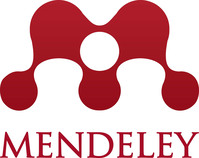“Why The Scale Goes Up Again?” A Socio-Ecological Exploration of Weight Loss Challenges among Female University Students
DOI:
https://doi.org/10.31436/ijes.v7i2.252Abstract
The purpose of this study was to explore the weight management and weight maintenance challenges experienced by obese female university students through a support group that acted as an intervention programme. The study is a phenomenological research involving four female students of a public university in Malaysia who were having problems with weight loss. They were selected with three inclusion criteria: female, had a body mass index of ≥ 30 kgm-2 and was currently seeking or had previously tried a method of losing weight. Interview protocols were used to guide interaction in the support group, and data were collected from regular focus group discussions occurring in the support group, journal writing, and products of the support group activities. Verbatims were transcribed and “meaning units” were derived from significant overlapping ideas. Using the socio-ecological model, the challenges of weight management among the participants were identified to exist at the individual, interpersonal and community levels. Of these three, the individual level was noted to have the most prominent number of challenge factors caused by poor self-control and the participants’ psychological states. Various issues related to poor self-control were the most frequently occurring themes among the participants who wanted to lose weight. In view of the findings, counsellors, dietitians or healthcare providers need to consider counselling techniques that can empower clients to manage their thoughts and emotions effectively as this will increase their self-efficacy in self-control.
Keywords: Weight loss, weight management, challenges in sustainable weight loss, poor self-control, sabotaging thoughts, socio-ecological model
Metrics
Downloads
Published
How to Cite
Issue
Section
License
Copyright (c) 2020 IIUM Press, International Islamic University Malaysia

This work is licensed under a Creative Commons Attribution 4.0 International License.
The Journal will own copyright to all published works and have the right of first publication, both in print and online, unless other arrangements are made with the Editors in advance. It is the author`s responsibility to ensure that where copyright materials are included within an article the permission of the copyright holder has been obtained beforehand.


















